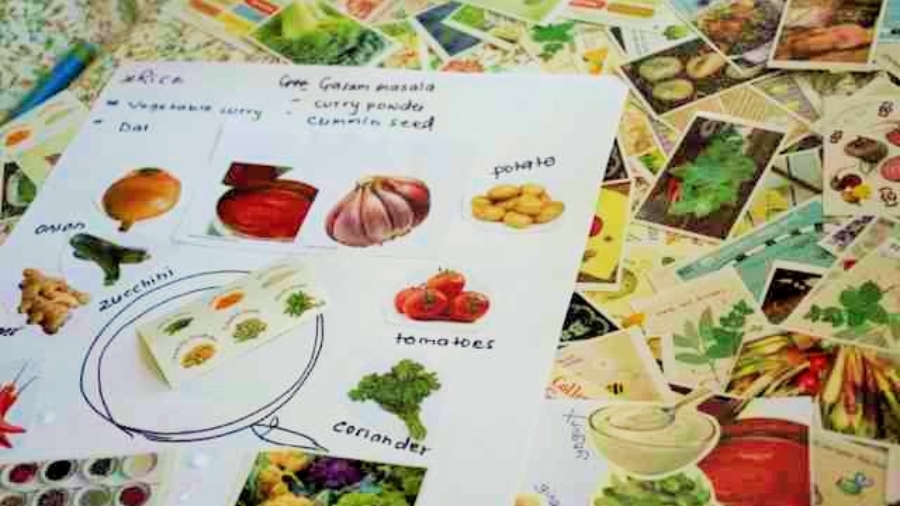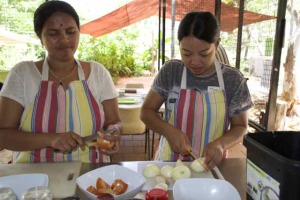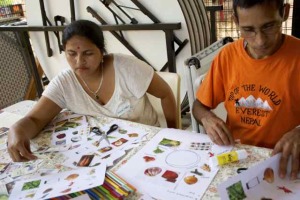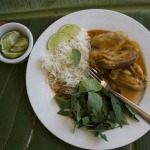Did you know that if you look at salt while cutting onion, you won’t cry? Or if you drink a raw bantam egg mixed with honey you will grow strong? No neither did I. I’ve learnt a lot over these past few months. Not just about food, but also the incredible strengths and resilience that shines through the stories of refugees and asylum seekers. Such is the beauty of ‘Recipes of Life’*. This collective narrative methodology, which I’ve talked about in a previous post, offers a safe way of bringing people together who may have experienced difficulties in their lives to build on their collective strengths, skills and knowledge.
In recent years, Darwin has seen a rapid rise in the number of people being locked up in detention centres having arrived on our shores by boat from Indonesia. It has been difficult to stand by, relatively powerless and witness the desperate pleas of asylum seekers and how they are treated. Fortunately, we have DASSAN, a great bunch of volunteers who provide visitation and advocacy services to those in detention. I happened to meet one such volunteer last year and we decided to trial a small group using the ‘Recipes of Life’program at the Mulch Pit Community Garden. By the time, we found funding, government policy had changed and not many asylum seekers were being released into the Darwin community so our group was mostly made up of settled refugees. Although this made our task of communicating with group participants a little easier as many refugees have basic beginners English, we still had a group representing four different language groups.
Without funding for translators, we plowed ahead and many parts of the program were adapted to accommodate more non-verbal methods of communication through doing, showing, acting, using hands, drawing, painting and using images. This contributed to many laugh-out-loud moments, and inspired the women to help each other share their stories. Using persistence and patience with us as facilitators and each other, somehow the group bonded!
One of the major achievements was the production of a Recipes Book featuring the participant’s favourite Food Recipes cooked and eaten in the on-site outdoor kitchen, as well as Recipes of Life featuring their strengths and skills, and Special Recipe Tips for surviving difficult times. Collectively, they also wrote a Recipe for Starting Life in a New Country. Their hope is that this recipe will benefit other refugees who have just settled in Australia.
Outcomes included building new relationships amongst participants, connecting refugees to new resources at Nightcliff including the op-shop and community garden, improved English skills and confidence in the community, and increased knowledge about growing and cooking tropical food. A lovely surprise was the spontaneous participation of partners, children and other family members, who would pop up in at different times during the program, either to lead cooking activities, resume natural food harvesting responsibilities or feast at the table.
I have no doubt this method would work just as well with other cultural groups, including Aboriginal women, men and young people. I wonder what special tips they would have to teach us about food and about life…
If you’d like to find out more about the program or send a message back to the women who created the Recipes Book, we would love to hear from you through our Contact Page.





